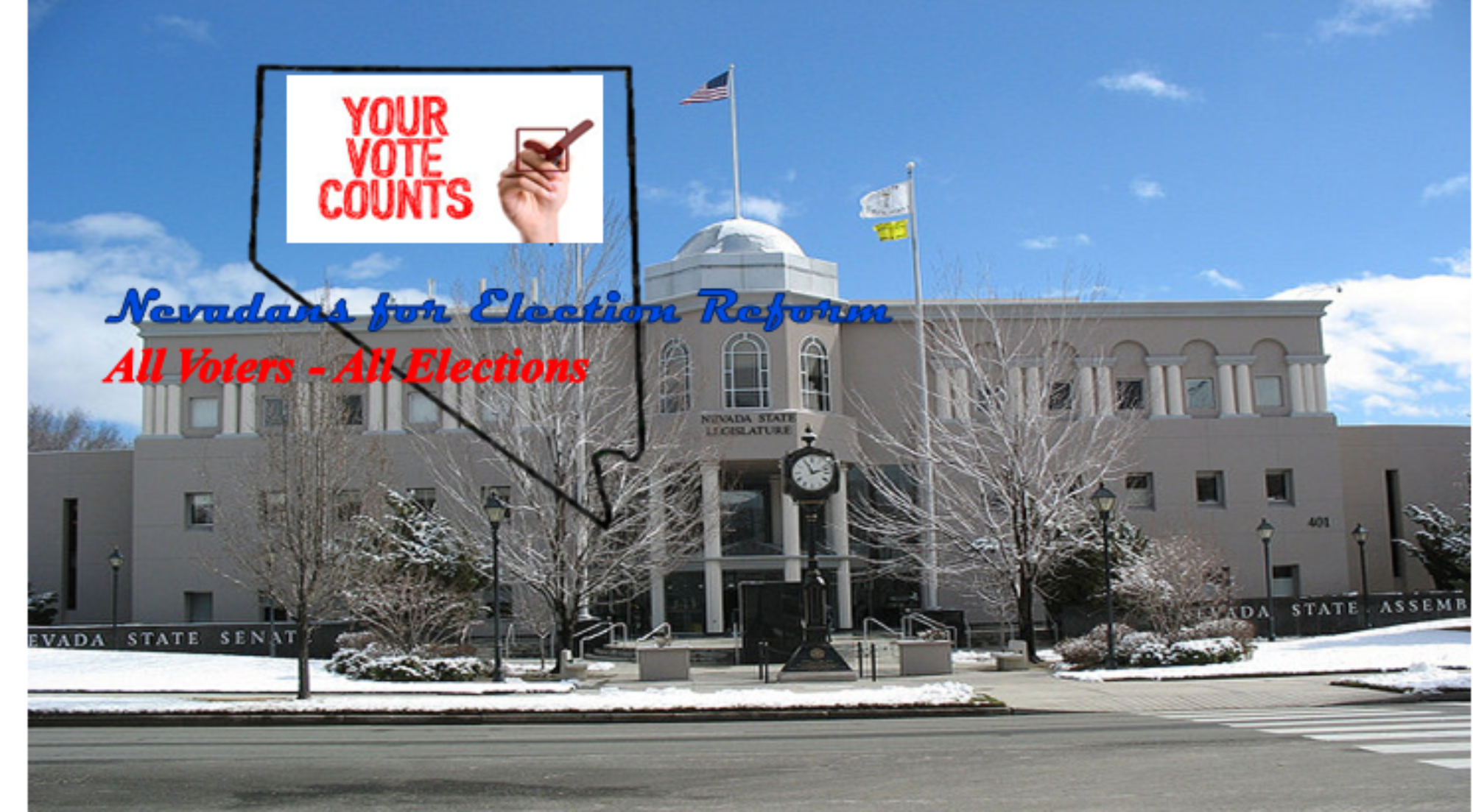The below editorial, copied verbatim, appeared in the Washington Post of June 14, 2014. It highlights the findings of the Pew Research Center’s study on the dangers of the political divide that exists in this country, also featured on this blog; “Political Divide Highlights Importance of Nevada Election Modernization and Reform Act”.
New York Senator Chuck Schumer has called for election reform. The Washington Post is adding its voice. The Nevada League of Women Voters and Reno Gazette Journal / Nevada Newsmakers political columnist Randi Thompson have called on the legislature to discuss election reform.
On August 5th, I posted how the non-partisan registration in Nevada is growing; over 50 percent of new voter registrations in July were as Non-Partisan. The Nevada legislature can show leadership on the national level by having an open debate on the Nevada Election Modernization and Reform Act during the 2015 session.
“Rebuilding the political center may require a change to the system
By Editorial Board June 14
AN IMPORTANT and troubling new study from the Pew Research Center confirms what has long been evident to observers of American politics: Ideological polarization and partisan conflict are deeper now than they have been for at least two decades. Liberals and conservatives are both more committed to their respective worldviews than they were 20 years ago, and the Republican and Democratic parties increasingly consist of ideological activists. Perhaps the most striking finding is that roughly half of each party’s donors revile the opposition as “a threat to the nation’s well-being.” The country’s deepening political divide is reflected in Congress: As recently as 1994, Pew reports, 12 senators and representatives had voting records that placed them between their respective chamber’s most liberal Republican and the most conservative Democrat. Today, there is no such overlap.
Still, there was a genuine silver lining in the otherwise dark Pew report. Though shrinking, the American political middle is bigger than the extremes. Some 39 percent of the electorate expresses a mixture of views on major issues, down from 49 percent in 2004 but larger than either the 34 percent whose views are mostly or consistently liberal or the 27 percent who are mostly or consistently conservative. And except for the purest liberals and conservatives, a majority of the country favors “50-50” compromise between President Obama and Republicans.
In short, while the extremes produce the sound and fury in U.S. politics, a large but latent market for moderation remains to be tapped. At some point, less ideological, more pragmatic voters will make their voices heard, and politicians will arise in response — or so one hopes.
The problem is that the dominant incentives in our political system favor the purists of left and right. Prominent among these is a congressional apportionment process that divides the population into reliably red or blue districts. Yet the Pew survey produces evidence that even an end to gerrymandering might not curb polarization, since liberal and conservative Americans increasingly say that they would rather live among ideologically similar people. This political “Big Sort,” identified by journalist Bill Bishopin a 2008 book of that title, may be beyond reversing by such oft-proposed remedies as nonpartisan primaries or redistricting commissions.
Rebuilding the political center might require more radical measures, such as the revival of at-large or multi-member congressional districts, which used to be common in many states but which were effectively outlawed by Congress in 1967 in favor of single-member districts. Such districts would have many potential pitfalls, not the least of which would be their compatibility with the Voting Rights Act. They would also have a potential advantage, which would be to empower less-ideological voters who feel left out of the current system. Any move in this direction would require an act of Congress, preceded by plenty of thought and planning. For lawmakers who are, after all, products of the existing machinery, that’s asking a lot — but not too much if they truly care about the country’s dangerous political drift.”
